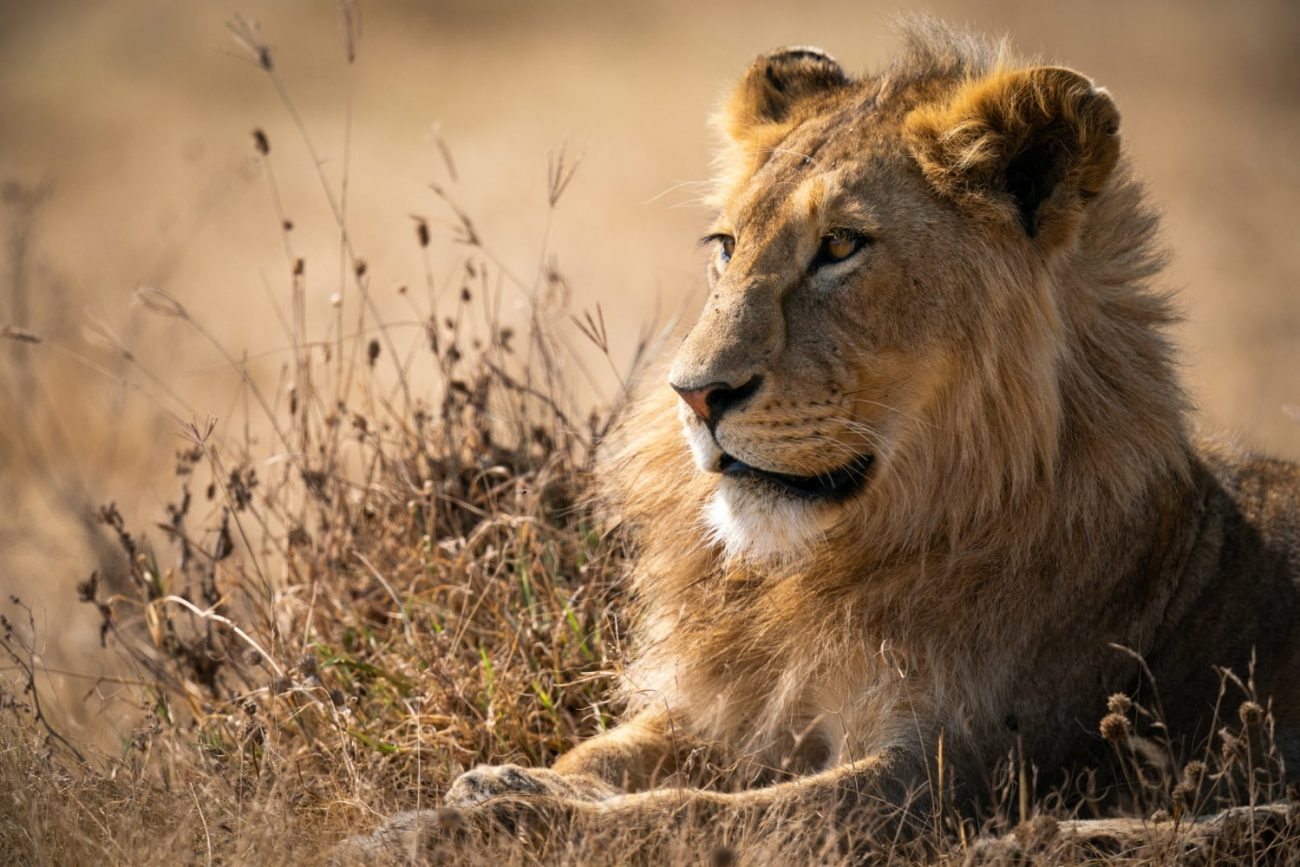Lions have always been admired and respected for their majesty and strength. They are a symbol of courage and royalty, present in the myths and legends of different nations. Despite their popularity, lions remain mysterious creatures with many interesting traits and characteristics. Let’s dive into the world of these majestic predators and learn more about them through a selection of interesting facts.
- Lions live in prides – social groups that can consist of 10 to 40 individuals. The pride is usually led by one or more males, and the bulk of the group is made up of females and their cubs.
- Lions are the only social cats. Other big cats, such as tigers, leopards, and jaguars, usually lead solitary lives, while lions live and hunt together.
- Male lions have manes – thick hair that grows around their heads and necks. The mane not only gives them an impressive appearance, but also serves as protection during fights with other males.
- Lions can roar so loudly that their roar can be heard from up to 8 kilometers away. The roar helps them communicate with pride members and mark their territory.
- Lions have powerful paws with large claws that allow them to hunt prey efficiently. They can make leaps of up to 10 meters in length, which helps them catch up with their prey.
- Lions hunt mainly at night, using their keen eyesight and hearing. The nocturnal hunting method allows them to avoid the heat of the African day and to use their natural camouflage more effectively.
- Female lions do most of the hunting in a pride. They work together, using ambush tactics to drive their prey to other members of the group.
- Lions can eat up to 30 kilograms of meat in one meal. They do not always eat every day, but can conserve energy and survive without food for up to two weeks.
- Lions sleep about 20 hours a day, saving energy for hunting. Their sleep includes short periods of activity during which they may change locations or communicate with other pride members.
- Lion cubs are born blind and helpless. They open their eyes a week after birth, and a few months later begin to accompany adults on hunts.
- Lions have an excellent memory and can memorize watering places and prey migration routes. This helps them survive in the harsh conditions of the African savannah.
- Lions can live up to 14 years in the wild and up to 20 years in captivity. In captivity, they have a better chance of living longer due to regular nutrition and medical care.
- Lions can travel long distances in search of food and water. They can travel up to 20 kilometers in one night in search of prey or better living conditions.
- Lions are an important element of the ecosystem, regulating the number of herbivores. Their activities help maintain the balance in nature and preserve biodiversity.
- In some cultures, lions are considered sacred animals. For example, in Ancient Egypt, lions symbolized the power and authority of pharaohs, and their images adorned temples and tombs.
- Lions can adapt to different habitats, from savannas to semi-deserts. They can survive in different climatic conditions, making them one of the most flexible big cats.
- Lions can reach speeds of up to 80 km/h over short distances. This makes them one of the fastest land predators, able to catch up with most of their prey.
- Lions have complex social structures and hierarchies in their prides. Dominant males have priority in feeding and mating, and their position is often backed up by physical strength.
- Lions often engage in playful games, especially in childhood. Such games help them develop hunting skills and social interactions that are important for their survival.
- Lions have unique “nose prints”, similar to human fingerprints. Each lion has a unique pattern on its nose by which it can be identified.
Lions are extraordinary animals that combine strength, grace and intelligence. Their social connections and strategic hunting skills make them unique among big cats. Learning about the life and behavior of lions helps us better understand these majestic creatures and appreciate their role in nature. Protecting and preserving their habitat is an important step in preserving these magnificent animals for future generations.

